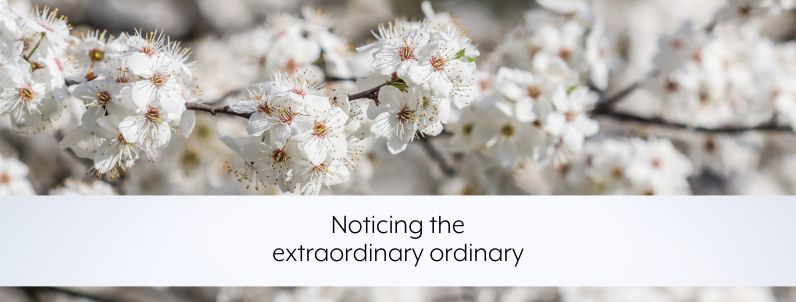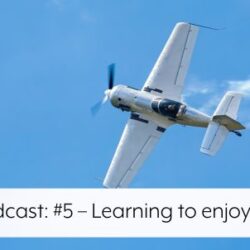
It was 2008 and I figured, in the midst of chaos and trauma and suffering, that ‘going for a walk’ might help. It wouldn’t solve it all, for sure, but it might help a little. It had been suggested. I had resisted. But now, at last, I thought, maybe – just maybe – I would give it a go. I still peered suspiciously at the idea, as if it were out to trick me, as if I might fail at it and be humiliated and further disempowered. But I was willing to give it a try. Once.
At the time I lived near a country park. The entrance was just a few hundred yards from my door. Therefore the effort was minimal: no need to battle through traffic, park, pay for parking with non-existent change, locate a toilet, and then begin the walk. I could close the front door and after a few minutes of ‘warm-up walking’, I would be walking the proper walk, the country park walk.
And so that’s what I did one day. I just went for a walk.
I was ridiculously apprehensive, nervous, uncertain. But it was okay. No choirs of angels, to be sure. No breakthrough moments of deep psychic healing. But it was okay. I survived it. It wasn’t as bad as I thought it would be.
And why on earth would I think it would be bad?
Because I thought everything was bad. Because fear and dread and anxiety dripped down the sides of every thought and intention I had. Because if it was something I wanted to do, it was bound to be bad, it was bound to go wrong, it was bound to be dangerous, it was bound in some way to cause me an increase, not a relief, of suffering.
I had some insight that my thinking was left of centre. But seeing that and knowing it were two entirely different things. All I knew, at that point, deep in my bones, was that life was dangerous and life was bad and anything I tried to do to ameliorate it would end in disaster.
So ‘going for a walk’ was no simple matter. It felt, in equal measure bizarrely and genuinely, like a matter of life and death.
I started going for walks more regularly. I was on a roll. Little glimpses of hope, of the possibility of possibilities, that if I could go for a walk, what else in life could I do … But then I tethered myself back to safety with the determination not to get ahead of myself, not ‘to run before I can walk’, and to ensure that walking was ALL I was trying to achieve. For now.
And so walking. But walking with purpose. Walking to get from A to B. Walking to have ‘been for a walk’. Walking for fitness. Walking for fresh air. Walking to help my mental health.
Walking with all my anxiety and shame walking right along with me.
But nonetheless, walking. A good step – literally – forwards.
Then one day I went for a walk with a friend. She was an older lady, a heap of shock-white hair on her head, shoulders stooped, slip-on shoes broken down at the backs, fluff and dog hairs on her top. It was a spontaneous kind of a thing. There we were, at my house, talking, and then, ‘What a beautiful day!’ she said and the next thing I knew we were paying homage to its beauty by being outdoors in it.
This was disturbing. I hadn’t planned on going for a walk. I wasn’t fully prepared. Although, to be fair, I was more prepared than my friend. I had proper walking shoes on, and a rucksack containing a coat (and gloves, and a hat, in May). My friend was bearing down, carelessly, on the country park gate with her slip-on shoes shuffling up and down her feet like they were trying to escape her, and she was hunting them down in every step. Was this really appropriate footwear for the country park?
I didn’t realise it was possible to do something as momentous as going for a walk without at least wanting to inform emergency services of my intended route.
And then there was the issue of speed.
When I went for a walk, I walked. Briskly. To get the walk done. To achieve. No point hanging around. No point ambling. No point shuffling like a pregnant sheep through silt. That’s what it felt like, to walk with my elderly friend. Over and again I had to reduce my march to a half-step. I had to keep stopping and turning and waiting. I was sure, at one point, that she was doing the ambulatory equivalent of treading water, as we’d made such little progress. I could be home by now, I thought, with the irritation of fear.
And then it happened.
There was a grand section ahead where the horse chestnuts lurched low over the path, as if bowing down to sweep it bare. I knew we were approaching it. I’d seen it before, many times. The trees were way-markers, indicating a deviation in the route. But suddenly my friend stopped and paused. And as if her whole being were on fire, she loudly, forcefully, unashamedly exhaled a cry of ‘How extraordinary!’
But she wasn’t looking at the horse chestnut trees. She was looking at the hedge on the other side. A hedge. It’s just a hedge, I thought. What’s so extraordinary?
And impatiently I feigned interest and went to see, as she stooped over and pointed out what was so extraordinary.
Flowers. Tiny little flowers. Extraordinary, these ordinary tiny little flowers. And leaves. Apparently they were extraordinary too. And another kind of plant just winding its way through those leaves and flowers. That, too, apparently, was extraordinary.
It’s just a bush, I wanted to say. And we’re not achieving our walk …
‘Extraordinary,’ she kept saying, and her face was washed over with a strange kind of radiance. Of pleasure. Of gratitude. Of wonder. Of joy.
At leaves. And flowers. In a bush.
My brain scrambled to compute. I was being tugged at, on the inside. We’re not walking. We’re not finishing our walk. We’re being too slow.
And we did continue to walk. And every few minutes, ‘Extraordinary!’ she would exclaim and we would stop and pause again at more flowers or plants or leaves or even at a fungus or some algae or a bird on a branch.
‘Extraordinary!’
I was by now irritated by how everyday things, normal life – flippin’ leaves for goodness’ sake! – were extraordinary. Surely they weren’t. Surely they were just ordinary. And surely we could walk a bit faster and get there a bit sooner?
And then eventually, of course, I saw it: that I couldn’t see the extraordinary in the ordinary. Because I wasn’t seeking it.
And it wasn’t even because I had a stunted interest in nature, or gaping un-knowledge of the names of plants and flowers and trees. It was because it wasn’t the way my brain was wired.
Because of trauma.
Trauma takes us out of ‘daily life mode’ into ‘danger mode’. Trauma takes us away from the extraordinary-in-the-ordinary and focused almost exclusively on threat. I knew this, as an abstract concept. But what I hadn’t realised was just how insidious it was.
I ‘went for a walk’ in order to achieve something. And deep beneath my consciousness, the primary focus within that was simply to stay safe. So I walked quickly. I walked with purpose, for the relief I would feel when I arrived back home, having survived the walk. I was pushing myself to do it, overriding my fear and dread and anxiety, and I had the satisfaction of achievement when I got home again – ‘I’ve been for a walk today!’ – but I had none of the satisfaction of the joy of the walk itself.
This is how my brain had wired itself after trauma: to prioritise danger, threat, alarm, fear, risk. Yes, I can push myself to go on a walk. And my danger-driven brain will stay alert from threat while I’m walking. And get me home safely. But it will miss out on every extraordinary moment en route.
And now here I was with this dear old friend, bowing down with delectable pleasure before every tiny flower and exclaiming, ‘Extraordinary!’ And refusing to walk, to march, to tab back to barracks. Just taking her time. She had come out for a walk to enjoy it. To enjoy the flowers and the leaves and the birds and the fungus. To stop and pause and notice it, to shimmer with reverence at it, to exclaim with joy.
It was one of those moments where the scales fall from your eyes and you realise that you have never, ever done this. I had never, ever stopped and marvelled at the extraordinary ordinary leaves. I knew that I needed to turn left just after the horse chestnut trees – that was why they were there. But I had never stopped to touch their prickly extraordinary seed cases. I had never traced my fingers over the bark or noticed the insects swarming in its crevices. I had never stooped to smell the flower in the hedgerow. I had never stopped stock still to watch the squirrel scurrying along the branches.
I had never done any of this. I had been so focused – unintentionally, unconsciously, unwittingly – on danger and threat and trauma, that I had missed out on this entire universe of joy right in front of me.
Ugh.
It’s that thud of pain in your soul at the true cost of abuse.
It’s that thud of pain in your heart at what you’ve lost.
It’s that thud of pain in your guts at how impoverished you’ve become.
It was a very long walk for a very short walk that day. And it was an even longer journey in my awakening consciousness. About half-way through, I stopped resisting. I realised that everything might in fact be extraordinary. That I was safe, here with my friend, in amidst all this blue-green blossoming beauty, and that I could realign my attention onto what is, the good that is, the ordinary extraordinary all around me, rather than on the danger that might be.
Noticing is the birthplace of joy.
‘Just notice,’ my therapist used to say to me in her sing-song therapist voice, every time an emotion washed up on the shore of my body and threatened to drown me. ‘Just notice. Just be curious.’ She wanted me to pay full attention to it, rather than dissociate away from it. She wanted me to learn to ride the wave of it rather than needing instantly to numb it. ‘Just notice.’
Later I learned that ‘just noticing’ activates our medial prefrontal cortex, our ‘front middle brain’, which has the best connections to our brain’s danger detector, the amygdala. ‘Just noticing’ helps to soothe the smoke alarm, and makes us less reactive over time to danger and threat. ‘Just noticing’ brings us into the here-and-now, rather than discharging abruptly into the there-and-then with all its horrors and default of dissociation.
‘Just notice,’ she would say, and I’d struggle to know what she meant. And how could ‘noticing’, how could ‘paying attention to’ possibly help? I had survived all my life by avoiding, by distracting, by numbing, by dissociating. There’s this painful, overwhelming feeling, this horrendous, too-sick-for-words memory erupting on the surface of my mind, and you want me to ‘just notice’ and to ‘just be curious’? It sounded like madness.
But then madness was exactly what I was struggling with. And this therapist seemed particularly unmad. Perhaps her way of doing things would be more successful than mine. Certainly my way was full of suffering, pain, self-hatred, and whole nights where I disappeared to who-knows-where and I did who-knows-what. I absented myself from my head, stopped ‘just noticing’, shut down all curiosity and went AWOL. And it wasn’t pretty.
So maybe I could be ‘just curious’ about the idea of ‘just being curious’ and ‘just noticing’. Maybe. Because, Yes, thank you, Fear, for pointing out that this is new, and that new might be dangerous. Thank you for trying to keep me safe. But your way isn’t working. Your way is a car crash of a life right now. So I need to try something new. And we’re ‘just noticing’. We’re ‘just being curious’. Nobody is going to die if we do that. So how about we try it?
On and on went the dialogue. Let’s just try a different way, shall we?
And then here I am in the country park, in the woods – woods of all places, after so much of my abuse took place in woods! – with this white-haired friend breathing out ‘extraordinary’ every 6.5 seconds. And I get it. Suddenly, I get it. She’s ‘just noticing’. She’s being curious. She can see what is right in front of her. She’s not walking to get it over and done with, to get safely back home again. She’s not in danger mode. She’s alive and she’s noticing all the goodness, the million extraordinary goodnesses all around her, and joy is swelling up through her like a river of gold. And, if I’m honest with myself right now, I think it’s extraordinary too. And I’m curious. And I just notice it.
Years later, and I’m stood in perfect silence. The kind of silence that edges towards eeriness, because it’s so complete. Ahead of me are mountains. I’ve come here because I know this as a place of delicious, aromatic joy. It’s a place I want to ‘just notice’. The road – empty, empty the entire walk, as if the world has been raptured, and I didn’t get the memo – stretches away for miles behind and ahead of me, undulating and winding like a thread of cotton laid next to the river. The browns of the heather and the purples of the birch lay on the land all around me as perfect as if an artist had daubed them onto the ground.
And I’m walking, but I’ve stopped. ‘Extraordinary!’ I breathe out. ‘Look at that!’ I say to no-one except myself. I’m pointing out to myself the immense beauty that I can see, of the mountains reflected in the glass-like water on this most still and calm and serene of days. ‘Just look at that! Isn’t that beautiful! Extraordinary!’
And that same uprush of joy floods through me, liquid gold glistening gladly in my soul. ‘Extraordinary! Extraordinary!’ It’s a skill I’ve learned. I’m here. I’m now. I’ve learned to attend to the ordinary extraordinary of the here-and-now and not to the danger of the there-and-then. It’s taken many years. It’s taken much practice. But I’m alive, and I’m glad to be alive, and nothing here is numbed. It’s extraordinary.



11 Comments
Omg i am literally at this point with my therapist right now- doing the marvellously average. So lovely to see this right now and missed reading blog posts
A timely reminder of the immense value of ‘just noticing’! Thank you
Thank you for writing this and for explaining the link with trauma. Such a heartwarming read. I have been there, stuck in that fear place where everything in the world feels unsafe and terrifying. And yet somehow through years of therapy and mindfulness practices, I also began to see the beauty in the “extraordinary ordinary” and feel a little safer gradually, taking it one step at a time.
Thank you, what a wonderful description of healing! I will be sharing this with my clients!
I have one word for this post, extraordinary! How beautiful the world is if we but stop and look and listen. Experiencing the loveliness in the here and now is vital to our mental health yet we often do not recognize it. I’m grateful for this piece. I repeat, extraordinary!
This blog made me cry, but in a good way, I guess. It made me realize how the things I do – going out, doing groceries, studying – are all centered around one thing: trying to function like a normal person. And then, after a day or two of function, there’s a day where I can do nothing. And I hate myself, for failing – again.
I should probably try and appreciate more. About the world and life, but about myself as well.
And I wish I had a therapist as nice as the one described in the blog. One with openness and enthusiasm and warmth. I look forward to reading more of your new blogs!
So beautifully written. I will share this with my clients who are struggling with finding the extraordinary in the ordinary. I believe your experience will provide them with hope. Thank you.
The natural world can bring us so much. I might say I’m devoid of ambition these days…but every day, I stop on the step and listen to the robin; I sit with my cat feeling hers purrs vibrate; I allow myself lovely soaps scented with lavender or honeysuckle. Pure contentment…always to be found in the beautiful things around us. Keep travelling…
I am using “just notice” more and more with my clients, who struggle with anxiety and stress. I am hoping that in time my clients “just notice” activates their medial prefrontal cortex, that connects to their brain’s danger detector, the amygdala. Explaining to them that “Just noticing” helps to soothe the smoke alarm, and makes them less reactive over time to danger and threat. Is so helpful and a quite a “lightbulb” moment in the counselling room.
Thank you for your words “Just noticing’ brings us into the here-and-now, rather than discharging abruptly into the there-and-then with all its horrors and default of dissociation.
Thank you for the reminder that what appears such a simple thing to do to say to ourselves “just notice” or “just be curious” can have such a profound effect to someone dealing with the aftermath of trauma in their daily lives. Just being able to help the client feel empowered by practicing this technique either in the therapy session or in their lives outside the room, is wonderful. It gives me and them hope for their recovery.
This is where I am with my therapist but she calls it living in the moment. I have never been able to relax from being vigilant. You have a wonderful way of making these hard to describe feelings very real and understandable. Thank you. I am only now starting to “notice ” at age 67. I am very grateful.